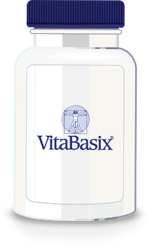The Incas began cultivating maca as early as 2,000 years ago; archaeologists dated the first evidence of maca cultivation to around 1,600 B.C. The root has been firmly anchored in Peruvian medicine for centuries, as it is said to increase strength, libido and fertility. After the conquest of Peru by the Spaniards, they realised that maca not only had positive effects on livestock, but could also increase people’s performance. They therefore began to export the root to Spain by the tonne. Initially, the Spaniards believed that maca was so powerful that only the royal family was allowed to use it.
Maca is a small (about the size of a ping-pong ball) tuber from the cruciferae family that grows in the Andes. The roots are rich in sugar, starch, proteins and important minerals – especially iron and iodine. The sweet, aromatic dried root is considered a delicacy. The dried maca root has a high nutritional value, very similar to various grains such as maize, rice and flour. It consists of 59 percent carbohydrates, 10.2 percent proteins, 8.5 percent fibres and 2.2 percent lipids. In addition, the onion contains large amounts of essential amino acids, iron, calcium, alkaloids, beta-ecdysone, magnesium, p-methoxybenzyl, isothiocyanate, phosphorus, saponins, stigmasterol, sitosterol, tannins, zinc, vitamin B1, vitamin B2, vitamin B12, vitamin C and vitamin E.
Maca also contains significant amounts of essential fatty acids, sterols, minerals, alkaloids, tannins and saponins. Those active components that are responsible for the aphrodisiac effect of maca are the biologically active aromatic isothiocyanates.
Extracts from the root can promote normal libido and energy efficiency, as well as support sexual performance. Maca is also said to promote hormonal balance and support positive weight management.
The numerous effects of maca make the plant attractive for all those who need an extra dose of energy.
If the absorption of these nutrients through the diet is not sufficient or there is an increased need, these nutrients can be supplemented through special food supplements.



 Chronobrands
Chronobrands



Reviews
There are no reviews yet.